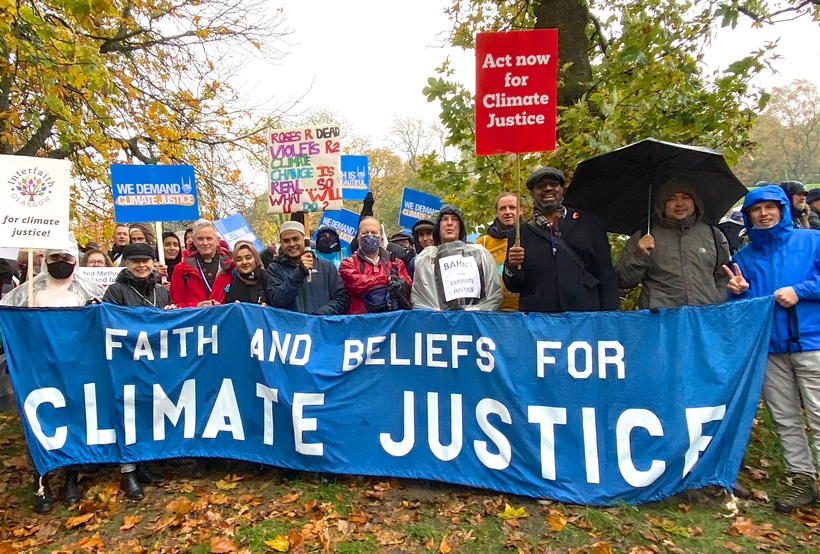Contacting politicians: who should I speak to and how can I be most effective?
Ahead of the Mass Climate Lobby in Scotland on 18 September, Sarah Komashko shares some advice on contacting your political representatives and driving change.

Contacting your politicians is a great way to support action on climate justice. Find out who you should contact and how to be most effective.
People in England have one MP representing them, so it's fairly easy to know who to contact if it's a parliamentary issue. However, in Wales there are five Senedd Members as well as one MP and in Scotland each person will have eight MSPs as well as one MP. In addition to this, for all nations there can be between one to four councillors elected with various powers. How can you know who is best to contact?
Identify your representatives
Firstly, identify your representatives: https://www.writetothem.com/ is a very useful website where you can put in your postcode and see the different levels of people who represent you.
Consider what your issue is
Taking environmental issues for example, and starting at the “bottom":
- Local councillors can deal with local planning applications, waste and recycling services, local parks, local flooding, and street cleaning
- If in Scotland or Wales, contact your MSP or MS in relation to 'devolved' areas such as energy infrastructure planning, heat/insulation of buildings, transport, and land use. In England you'd contact your MP directly about these types of issue.
- For everyone across the UK, your MP is the one to go to with concerns about wider energy policy, overall UK climate targets, and international agreements. Concretely this means things like setting the prices of gas and electricity, and setting the level of taxes for petrol and diesel or for things like the windfall energy levy.
There can be some overlap between representatives. For example, while energy infrastructure is mainly the domain of Westminster MPs, the Scottish Parliament has some influence because they can control planning in Scotland. And sometimes the Scottish Parliament can use “soft power" to influence UK-wide climate policy through consultation mechanisms and strategic positioning. For example, in setting more ambitious climate targets, Scotland can raise the bar for UK-wide ambition. A few years ago, at COP26, Scotland was among the first to pledge specific funding for loss and damage, which encouraged other countries to pledge funds too.
Sometimes representatives themselves may not be aware of what they have the power to do, but if they can't help directly then they should be able to put you in touch with the best person to take your issue forward.
Build a relationship
For MSPs and MSs in particular, you may still be left choosing between several representatives. You can write a similar email or letter to them all, however sometimes choosing a particular representative and seeking to add a personal connection can help to build a relationship with them and they may be more likely to respond. For example:
- Do they sit on a committee that's relevant to your concern?
- Are they a party spokesperson for the issue that you're contacting them about?
- Are you a member of their political party / did you vote for them at the last election?
- Have they recently spoken about the issue?
In relation to the last bullet point, another good website to use to track issues you care about is https://www.theyworkforyou.com/. This covers the UK, Scottish, and Welsh Parliaments. You can put your postcode in to see your representatives, and can then click through then you can see an overview of each person, with their recent appearances, votes, and register of interests. You can send them a message and get email updates on what they've been up to in parliament. You can also set up an email alert if you want to be notified when they speak again, which can be a good reminder for you to reach out to them and either thank them for speaking up on a topic or encouraging them to go further.
Be positive and supportive
Remember that politicians are people too! Many representatives report feeling burned out from constantly combative and/or derogatory interactions, particularly on social media. When you contact your representative, acknowledge the good work they're doing where possible – this helps build the constructive relationships that lead to meaningful policy change. Politicians who feel they have genuine constituent support are more confident in taking bold positions and pushing for the changes you want to see. Your thoughtful, appreciative engagement can be the encouragement they need to keep fighting for the issues that matter to you and your community.


